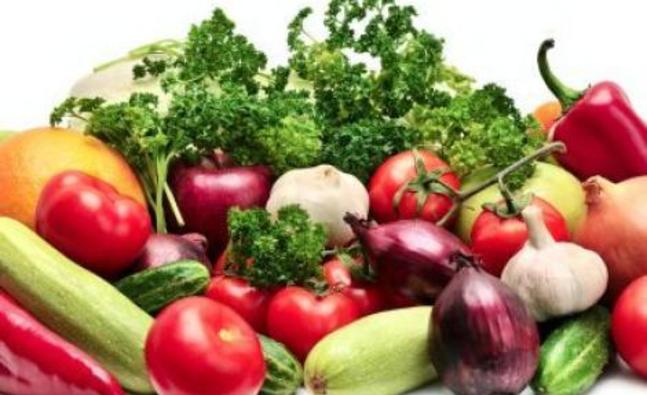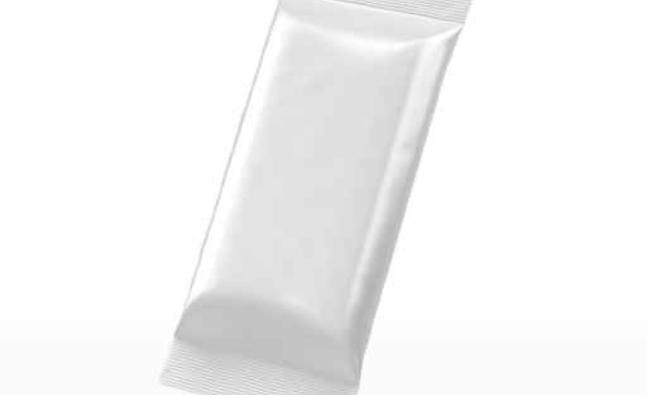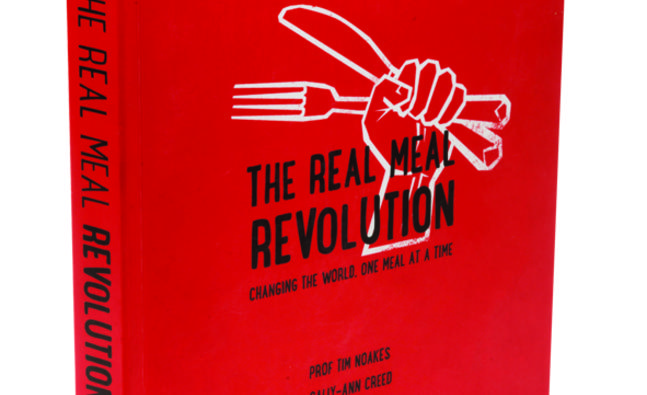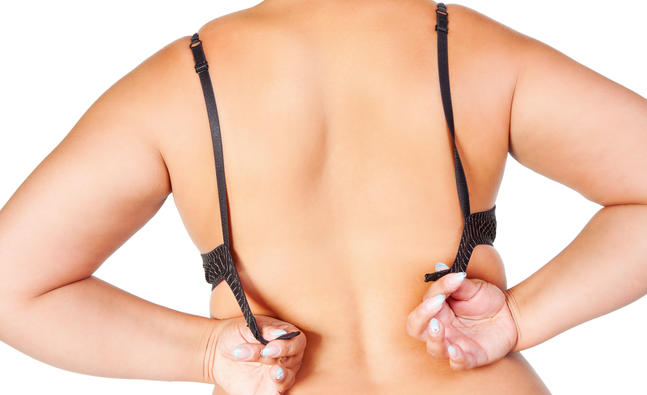10 super nutrients for a flatter belly

If you'd like a toned tummy, sit ups and calorie-counting will only get you so far. What you put into your body is just as important as how much you sweat off at the gym.
Beta carotene and lycopene
Both are pigments found in plants and colourful vegetables, and both are also high in antioxidant properties. Beta-carotene is converted into vitamin A in the liver.
According to a 2009 study published in the Journal of Nutrition, people who ate higher amounts of carotenoids, beta-carotene, alpha-carotene, and lycopene had smaller waists as well as less body fat. As a general rule, orange and yellow vegetables are rich in beta-carotene. Load up on carrots, sweet potatoes, spinach and other leafy green vegetables, and fruits such as apricots.
Tomatoes are some of the richest sources of lycopene. Other sources of this important nutrient include watermelons, pink grapefruits, and apricots.
Vitamin C
Vitamin C is a water-soluble vitamin otherwise known as ascorbic acid.
In addition to boosting the immune system and helping to fight of colds, vitamin C also plays a role in helping you get physique you want. A recent study in The American Journal of Clinical Nutrition found the higher the vitamin C content in blood samples of participants, the lower the waist-to-hip ratio was for both men and women.
Vitamin C can also help you burn more fat. A 2006 study by the University of Arizona found that those with higher vitamin C in their system oxidized 25 percent more fat during the treadmill test than those with 'marginal vitamin C status'. Green peppers, citrus fruits like oranges and grapefruit, strawberries, tomatoes, broccoli, leafy greens and potatoes contain vitamin C.
Vitamin D
This fat-soluble vitamin is naturally formed when our bodies are exposed to sunlight.
There have been many recent studies touting the belly-banishing effects of vitamin D. Researchers at the Medical College of Georgia found that teenagers who reported higher vitamin D intakes had lower amounts of abdominal fat, and lower overall body fat. A 2010 study by the University of Michigan found that kids deficient in vitamin D accumulated fat around the waist and gained weight more rapidly than kids who got adequate amounts of the vitamin. But it isn't just teens and kids that gain more weight when deficient in the sunshine vitamin: A 2010 study published in the Journal of Nutrition found the same inverse relationship, suggesting overweight people may have problems processing the vitamin properly.
Foods to choose: Mushrooms, especially shiitake and button, and eggs. In addition, you can get high amounts of the vitamin in fish sources like mackerel, salmon, herring, sardines, catfish, and tuna.
B vitamins
These water-soluble vitamins play an important role in cell metabolism.
B vitamins help beat the bulge by converting protons, fats, and carbohydrates into energy, whilst also increasing your metabolism. A study published in the International Journal of Sports Nutrition and Exercise Metabolism found that individuals with a lack of these vitamins performed worse during high-impact exercise than athletes with balanced levels of B-complex vitamins. Also, multiple studies show that those who lacked B vitamins experienced a decreased ability to repair and rebuild muscles.
Foods to choose: Salmon, eggs, poultry, oats, barley, avocado, nuts and lentils.
Calcium
Calcium is the most common mineral in the human body. About 99 percent of the calcium in the body is found in bones and teeth.
A study published in Nutrition and Metabolism found that those who consumed 1 400 t0 1 500 milligrams of calcium per day gained less body fat over a four-year period. In another study at the University of Tennessee, scientists found that those who ate three daily servings of calcium lost 70 percent more weight and 64 percent more body fat.
Hard cheese, low-fat milk, sardines, fortified orange juice, leafy greens and yoghurt all contain calcium.
Omega-3 fatty acids
Omega-3s are polyunsaturated fatty acids. They are considered essential fatty acids your body can't make alone - you have to gain these through your diet.
A study from the University of Georgia found that fish oils prevent pre-fat cells from being converted into fat. Also, researchers from the University of Navarra in Spain and the University of Iceland found that omega-3-rich foods keep people feeling full, longer.
Research also shows omega-3 fatty acids lower levels of stress hormones, such as cortisol, that can contribute to fat storage. Beyond taking a fish-oil supplement, you can get omega-3s from fish oils in your natural diet. Fatty fish like salmon, mackerel, herring, lake trout and sardines, are high in omega-3 fatty acids. You can also get these healthy fats in oil like peanut oil, flaxseed oil, canola oil and soybean oil.
Choline
Choline is known to play a role in the metabolism of fat - it breaks down fat for use as an energy source. Because of that, recent studies have shown choline, which is found in large amounts in egg yolks, to play a role in weight loss. A study published in the Journal of the American College of Nutrition found an egg breakfast induced greater satiety and significantly reduced short-term food intake compared to a calorically equivalent bagel breakfast. Eat eggs, peanuts, potatoes, tomatoes, bananas, lentils and milk.
Anthocyanins
These antioxidants are water-soluble vacuolar pigments that may appear red, purple, or blue.
A University of Michigan study found that those who ate berries high in anthocyanins, such as tart cherries and blueberries, had less belly fat. In a study performed on rats, researchers found animals that were fed cherry powder lost 17 percent of their belly fat in just three months. In a similar study using blueberry powder, researchers found that rats lost belly fat when fed blueberry powder, even in combination with a high-fat diet. Though the studies have only been conducted in animals, study authors are hopeful humans can experience the same belly-busting benefits. Apart from cherries and blueberries, load up on cranberries, oranges, radishes, raspberries, red onions, red grapes and wine.
Potassium
Potassium is a powerful electrolyte and occurs naturally in many foods such as bananas, avocados, spinach, sweet potatoes and papayas.
Too much sodium in your body can make you retain an excess of water, which in turn gives you that undesired fat-belly look. Eating potassium-rich foods triggers the kidneys to excrete more sodium. The nutrient has a diuretic effect on your body, which promotes the right water balance and helps you look more svelte.
Fibre
Fibre is a type of carbohydrate that the body can't digest.
Fibre-rich foods are typically low in calories, but keep you feeling full, longer. Fibre also helps maintain an even blood-sugar level, which helps prevent you from overeating during meal times. A study from the University of Southern California found that study participants who added six grams more fibre to their diet every day helped shrink their belly fat by 4%.
Whole grain foods, nuts and seeds, avocados, broccoli, cabbage, carrots, raspberries, pears and apples all contain fibre.
-
The less you sleep, the more you eat
-
Winter blues and weight loss
-
Do you exercise hard enough?
-
Cut down on sugar to cut down on calories
-
Eat this, not that!
-
6 Things You Can Do at the Gym to Curb Your Appetite
Most women think of exercise and healthy eating as two totally separat
- DON'T MISS
- 6 Things You Can Do on Friday to Prevent Weekend Weight Gain
- A bad food thats great for weight loss
- Texting your way to weight loss
- Brain scans reveal a key to weight loss
- Support a loved ones weight-loss efforts
- Top habits of successful dieters: Top triggers
- Give up a treat and lose weight
- 10 SUPER-FOODS THAT HELP YOU LOSE WEIGHT
- 7 Obesity myths exploded
- Stop eating when you are satisfied




